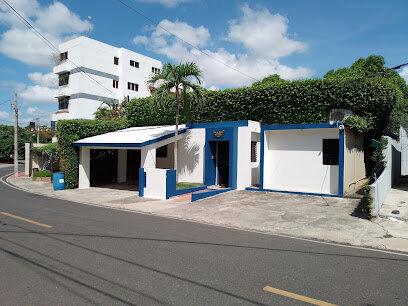Best Whistleblower & Qui Tam Lawyers in Santiago de los Caballeros
Share your needs with us, get contacted by law firms.
Free. Takes 2 min.
List of the best lawyers in Santiago de los Caballeros, Dominican Republic
About Whistleblower & Qui Tam Law in Santiago de los Caballeros, Dominican Republic
Whistleblower and Qui Tam law refer to legal protections and opportunities for individuals who report illegal or unethical activities within organizations, particularly those involving government contracts or public funds. While the Dominican Republic does not have a dedicated Qui Tam statute similar to those found in countries like the United States, there are legal provisions in place to protect individuals who expose corruption, fraud, or misconduct. In Santiago de los Caballeros, the second largest city in the country, these matters are especially relevant in both the private and public sectors due to the city's significant economic and governmental activities.
Whistleblowers, or "denunciantes," play a crucial role in identifying and addressing wrongdoing. Laws exist to protect those who make good-faith reports of illegal activities from retaliation. Understanding the legal framework is essential for anyone considering blowing the whistle in Santiago de los Caballeros.
Why You May Need a Lawyer
Individuals may require legal assistance in whistleblower and Qui Tam cases for several reasons:
- Understanding your rights and protections as a whistleblower
- Reporting complex cases of corruption, fraud, bribery, or misuse of public funds
- Navigating procedures when filing complaints to authorities like the Public Ministry
- Seeking protections against possible retaliation from employers or others
- Ensuring your actions are legally compliant and will not result in unintended legal consequences
- Assisting with the collection and presentation of evidence
- Advising on possible rewards or compensation for exposing certain types of fraud
- Confidentially discussing your options before taking any public steps
A lawyer with experience in this area can help maximize the impact of your information, protect your interests, and guide you through the complex local legal landscape.
Local Laws Overview
While there is no specific Qui Tam law in the Dominican Republic, several key legal frameworks are relevant for whistleblowers in Santiago de los Caballeros:
- Law No. 41-08 on Public Function: This law provides protection for public employees who denounce irregularities in government agencies.
- Law No. 448-06 on Corruption and Bribery: Stipulates mandatory reporting of corruption and outlines sanctions for those involved in concealing such actions.
- Dominican Penal Code: Includes provisions regarding fraud, bribery, illicit enrichment, and protects witnesses and complainants in certain situations.
- Law No. 10-04 on the Chamber of Accounts: Supports the reporting of misuse of public resources to the superior control entity.
- Anti-Money Laundering Law: Encourages reporting suspicious financial activities, with certain protections for reporters.
Additionally, the Constitution of the Dominican Republic upholds the right to denounce illegal acts and guarantees protection for those who help enforce the law, though enforcement and practical protection can sometimes be challenging. The legal landscape is evolving, with ongoing efforts to strengthen whistleblower protection mechanisms at both national and municipal levels.
Frequently Asked Questions
What is considered whistleblowing in Santiago de los Caballeros?
Whistleblowing involves reporting known or suspected illegal activity, unethical conduct, or corruption within a public institution, private company, or any place of employment in Santiago de los Caballeros. This can include fraud, bribery, misuse of public funds, or other forms of corporate and governmental misconduct.
Is there a reward for whistleblowers in the Dominican Republic?
Unlike in some countries with Qui Tam statutes, Dominican law does not generally provide financial rewards for whistleblowers. However, tips that lead to recovery of significant assets or prevention of corruption may sometimes be acknowledged by authorities.
Are whistleblowers protected from retaliation?
Yes, several laws, especially Law No. 41-08 for public employees and the Penal Code, provide certain protections against retaliation for those who report wrongdoing. However, enforcement of these protections can be inconsistent, so legal counsel is recommended.
Can I report wrongdoing anonymously?
Some authorities permit anonymous complaints, especially in cases involving corruption. However, anonymity may limit the authorities’ ability to fully investigate or provide the complainant with updates or protections. Legal advice can help you understand your options.
What should I do before reporting misconduct?
Gather evidence, document your concerns, and seek a confidential consultation with a lawyer experienced in whistleblower matters. This will help ensure that your report is credible, and that you receive maximum legal protection.
Where do I file a whistleblower complaint in Santiago de los Caballeros?
You can file a complaint with the Public Ministry (Ministerio Público), the Chamber of Accounts, the Attorney General’s Office on Administrative Corruption (PGR/Procuraduría Especializada de Persecución de la Corrupción Administrativa - PEPCA), or with your employer’s compliance office, if available.
Can employees in private companies also be whistleblowers?
Yes, private-sector employees can report illegal or unethical activities. They can take complaints to appropriate regulatory bodies, law enforcement, or their company’s internal compliance office. Legal advice is especially important in these cases due to fewer explicit protections.
How can I prove retaliation?
Keep detailed records of any adverse actions following your report, such as demotions, terminations, or workplace harassment. A lawyer can help you document your experience and present a strong case.
How long does the process usually take?
The duration depends on the complexity of the case, the agencies involved, and the volume of evidence. Some investigations may resolve within months, while others, especially those involving significant public corruption, can take years.
Is legal representation required when reporting as a whistleblower?
It is not strictly required, but it is highly recommended. An attorney can help ensure your rights are protected, increase the effectiveness of your report, and provide invaluable support if you experience retaliation or legal challenges.
Additional Resources
Below are some resources and organizations that offer support, information, or avenues for reporting whistleblower and Qui Tam matters in Santiago de los Caballeros:
- Public Ministry (Ministerio Público): Handles official complaints regarding illegal activity, corruption, and fraud.
- Attorney General’s Office on Administrative Corruption (PEPCA): Specialized unit for combating corruption in public administration.
- Chamber of Accounts (Cámara de Cuentas): Supervises financial activity of public institutions and receives reports of irregularities.
- Office for Ethics and Government Integrity (Dirección General de Ética e Integridad Gubernamental): Promotes ethical standards in government operations and receives complaints from whistleblowers.
- Human Rights Offices and NGOs: Various organizations offer support and advocacy for individuals facing retaliation.
- Local Bar Association (Colegio de Abogados de Santiago): Can refer you to lawyers specializing in whistleblower protections and anti-corruption law.
Next Steps
If you are considering reporting unlawful or unethical behavior in Santiago de los Caballeros, start by gathering any documentation or evidence related to your concerns. Seek a confidential consultation with an attorney who has experience in whistleblower and anti-corruption law. They can help you:
- Understand your rights, obligations, and protections under Dominican law
- Determine the best way to submit your report, whether anonymously or in your name
- Navigate the specific procedures of relevant authorities or agencies
- Develop a plan to protect yourself from retaliation or negative consequences
- Evaluate your case for possible further action, including civil or criminal claims if warranted
Remember, taking early legal advice helps safeguard your interests and can make the reporting process smoother and more effective. If you believe immediate harm or risk is involved, prioritize your safety and discuss protective measures with your lawyer right away.
Lawzana helps you find the best lawyers and law firms in Santiago de los Caballeros through a curated and pre-screened list of qualified legal professionals. Our platform offers rankings and detailed profiles of attorneys and law firms, allowing you to compare based on practice areas, including Whistleblower & Qui Tam, experience, and client feedback.
Each profile includes a description of the firm's areas of practice, client reviews, team members and partners, year of establishment, spoken languages, office locations, contact information, social media presence, and any published articles or resources. Most firms on our platform speak English and are experienced in both local and international legal matters.
Get a quote from top-rated law firms in Santiago de los Caballeros, Dominican Republic — quickly, securely, and without unnecessary hassle.
Disclaimer:
The information provided on this page is for general informational purposes only and does not constitute legal advice. While we strive to ensure the accuracy and relevance of the content, legal information may change over time, and interpretations of the law can vary. You should always consult with a qualified legal professional for advice specific to your situation.
We disclaim all liability for actions taken or not taken based on the content of this page. If you believe any information is incorrect or outdated, please contact us, and we will review and update it where appropriate.












